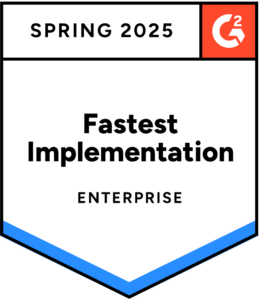The Rise of ESG Reporting and How it Impacts the Office of Finance
Blog post
Share
Environmental, social, and corporate governance (ESG) has gained traction over the past few years – stakeholders and consumers have placed an emphasis on supporting businesses that are transparent and care about their impact on the world. ESG reporting comes in many forms, some being:
- Impact reports on environmental waste, damage, and conservation
- Reports on company culture, data protection, and community involvement
- Boardroom decision making, transparent accounting, and voting rights
The push for ESG reporting to be included within business’ regulatory reporting on an annual basis is growing. At each year end, stakeholders and consumers are becoming more conscious about who they support and want to know what businesses are doing to uphold the promises they have made, in terms of publicized ESG initiatives.
While regulatory reporting standards are still being established around ESG, it is imperative that businesses understand that ESG reporting is becoming a must-have in the coming months and years. This new demand will affect their finance and accounting teams who must adapt and navigate the reallocation of resources, financial reporting, and data that come with ESG.
The Benefits of ESG Reporting
Benefit #1: Competitive Advantage
Businesses are being held accountable now more than ever through ESG reporting. The main driver of this reporting comes from stakeholder pressure — people want to make sure that their investment and support is being used in a conscious and intentional way. When businesses report on their ESG efforts, they have seen better returns because investors want public commitments and behaviors, which drive a competitive advantage over other businesses that are not disclosing this information.
Benefit #2: Company Value
By being forthright, stakeholders and consumers see the dedication a business has towards transparency and communication which results in long-term growth of the business. By having an ESG strategy, and sharing that strategy, businesses can show their efforts to mitigate risks and how they can generate long-term financial returns that relate to both the business and the community. Stock and public image increase favorably, raising the company’s value.
ESG and the Office of Finance
When businesses engage in their ESG initiatives, they must keep records to showcase their results. To share these results, ESG reporting must live in the Office of Finance. This is because they can prove ESG efforts via financials and document a paper trail, or record of sustainability.
For example, if a business says that they will plant a tree for every thousand sales, there is a record of purchasing land for the tree, the tree itself, or hiring someone to plant it for them. Financial automation software comes in as proof — finance and accounting teams are tracking the spending in relation to whatever ESG initiative a business enacts.
ESG Reporting Standards and Integration
Companies know that they need to be responsible and compliant regarding ESG initiatives and reporting. They must be prepared to include the actions taken within their regulatory reporting, and must be able to adapt as ESG regulations are being established.
An article by Forbes states that many significant accounting standards bodies are beginning to add new guidelines that encourage companies to consider their impact on society while reporting on finances. They are recommending businesses report financials in a way that includes environmental items, reclassifications, and changes in accounting policy. This means that ESG reports are becoming a new standard that businesses need to include within their yearly reporting.
5 Actions to Integrate ESG
Deloitte offers 5 actions that help elevate and prioritize ESG reporting within the Office of Finance and overall business:
- Bake it in your strategy – define priorities with objectives and key performance indicators
- Get your data right – collaborate across your organization to showcase ESG data
- Choose your companions wisely – when working with third parties, keep ESG strategies in mind
- Tell your story – communicate your ESG vision to your consumers, create a standardized reporting framework
- Be innovative – find new ways to implement your ESG strategy and impact on the world
ESG is Here to Stay
Environmental, social and corporate governance reporting is not a trend — the demand for businesses to be transparent and conscious about how their operations affect the world is becoming a standard that will make or break the support of a business. People want to know if organizations they are supporting uphold ethical operations that also provide benefits to society.
Finance and accounting are integral to ESG reporting as the Office of Finance will handle all records related to costs, data, reports, and benefits related to initiatives that businesses engage in. CFOs need to be aware of the important role that the Office of Finance will play as stakeholders and consumers hold businesses more accountable.
[cta-content-placement]
Written by: Mikayla Jordan








